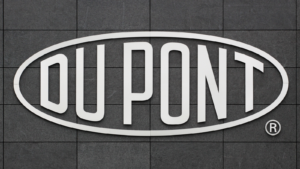3 Industrial Stocks to Sell in June Before They Crash & Burn
U.S. industrial output continues to accelerate. After a downturn during the pandemic, industrial manufacturing has come storming back. The latest data from the U.S. Federal Reserve showed that U.S. factory output rose sharply in May of this year. Industrial production rose by 0.9% in May from April. That was the strongest reading this year and well above market expectations of a 0.4% monthly increase.
Employment in manufacturing has also recovered. Today, 13 million Americans are employed in industrial manufacturing jobs. The manufacturing sector contributes nearly $3 trillion to the gross domestic product (GDP) of the U.S. Given its growth and outsized contributions to the economy, one might assume that industrial stocks are great investments. However, there are a number of industrial concerns that are troubled.
Here are three industrial stocks to sell in June before they crash and burn.
Waste Management (WM)

Trash collection and recycling giant Waste Management (NYSE:WM) is buying Stericycle (NASDAQ:SRCL) for $7.2 billion. Stericycle specializes in collecting and disposing of medical and pharmaceutical waste. Waste Management says it wants to gain more share of the fast-growing healthcare waste disposal market. Should the deal receive regulatory approval, it could help to diversify Waste Management in the long run.
However, the acquisition presents some regulatory hurdles for Waste Management to clear and saddles with company with new debt. Under terms of the deal, Waste Management is offering $62 a share for Stericycle. That represents a 20% premium to Stericycle’s stock price at the time the deal was announced. Some analysts have questioned the acquisitions price and whether the deal is necessary.
WM stock is up 15% this year, matching the gain in the benchmark S&P 500 index.
Boeing Co. (BA)

On Tuesday of this week, Boeing Co. (NYSE:BA) CEO Dave Calhoun was grilled on Capitol Hill about the aircraft manufacturer’s litany of safety problems. It’s the latest drama surrounding the once mighty industrial company that is one of only two commercial airplane makers in the world. Following several safety mishaps and reports of shoddy manufacturing work, BA stock has sunk 30% this year and is one of the worst performing stocks in the S&P 500.
Reports state that Boeing received only four aircraft orders this May. That compares t0 69 airplane orders received in May 2023. For a second consecutive month, none of the aircraft orders placed with Boeing were for its 737 MAX planes that have struggled with safety issues. Production at Boeing has slowed to nearly a trickle after an emergency door plug blew off a 737 MAX aircraft midflight at the start of this year. The incident has resulted in strict regulatory oversight by the Federal Aviation Administration (FAA).
The ongoing problems make Boeing an industrial stock to sell.
DuPont (DD)

Industrial chemical producer DuPont (NYSE:DD) has announced a risky strategy to break itself into three separate publicly traded companies. The new companies will focus on materials with brands such as Tyvek and Kevlar, one serving the semiconductor industry, and a third that is focused on water purification. DuPont has also changed CEOs. Former CEO Ed Breen stepped down June 1 and has been replaced by chief financial officer (CFO) Lori Koch.
After the break-up, the new Dupont that retains the “DD” stock symbol will essentially be a materials company that serves the industrial, construction, and automotive markets. While other companies such as General Electric (NYSE:GE) have split their businesses in recent years, the end results have been mixed and the actual break-ups have been messy. Over the next year, shareholders of DuPont should brace for heightened volatility.
DD stock is up 3% this year and has risen 7% over the last five years, trailing the broader market.
On the date of publication, Joel Baglole did not have (either directly or indirectly) any positions in the securities mentioned in this article. The opinions expressed in this article are those of the writer, subject to the InvestorPlace.com Publishing Guidelines.

